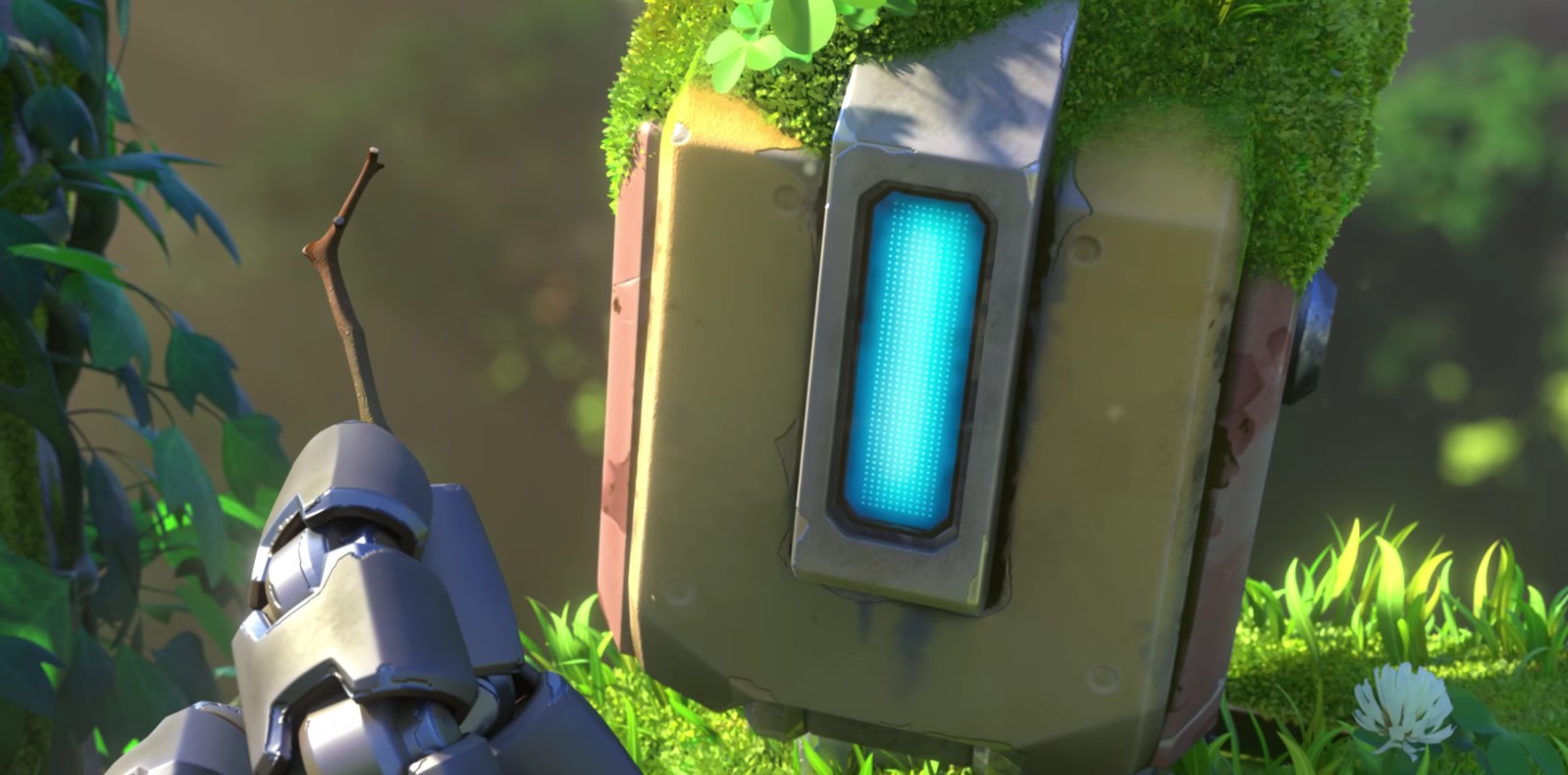Overwatch's Bastion buff has already been dialed back
Game director Jeff Kaplan said Bastion is 'little too powerful,' but not as much as you think

Recent changes to Overwatch's battle bot Bastion were intended to increase its viability in mobile Recon mode, while making its Sentry mode "more of a tank buster." In a patch notes comment, Blizzard said, "Overall, Bastion should feel stronger and more flexible with these changes," and it certainly seems to have worked out that way.
Perhaps a little too well, in fact, as Bastion is now the subject of complaints that it's become too powerful. The main point of concern is Bastion's new Ironclad ability, a passive ability that reduces damage taken by 35 percent while in Sentry (turret) and Tank (ult) configurations.
The ability is meant to make Bastion survive a bit better while stuck in the no-mobility turret mode, but between Ironclad, Bastion's armor, and its new/improved self-healing ability, the Omnic gunner can survive a massive amount of damage, such as more than a full clip of Pharah's rockets or even a direct stick from Tracer's Pulse Bomb.
In a recent post on the Battle.net forums, game director Jeff Kaplan said he shares that "perception," but he also explained that the situation isn't quite as black-and-white as some players might think.
"One interesting thing is the actual meta vs. the perceived meta. The perceived meta is largely driven off of the professional scene and what gets played in tournaments. After those tournaments, really cool reports are written analyzing the pro scene. Those reports go out of their way to say that they are solely reflective of the pro scene and not necessarily representative of the playerbase at large. Yet people cite the pro pick choices as gospel," Kaplan wrote.
"One thing that I found interesting was that there was a perception based on those reports and in the community that Mercy is never played," he continued. "Yet according to our stats back during the '3 tank meta' when 'Lucio and Ana were the only viable healers', Mercy was the 5th most played hero OVERALL—and yes, I am talking about in Competitive Play, not Quick Play."
One of the big challenges facing Blizzard is that changing heroes to make them more viable, and thus more regularly used—which is what Overwatch players want—inherently means making them more powerful. So when they do start showing up more, they're tougher to face off against than players expect. That can lead to occasionally heated reactions among the community, and demands for even more changes that aren't always fully considered.
The biggest gaming news, reviews and hardware deals
Keep up to date with the most important stories and the best deals, as picked by the PC Gamer team.
"I play every night. I'm playing both Quick Play and Competitive (I played 2 games of CTF to get my loot box). Over the past few nights I've played with, as and against Bastion. My perception is that he is a little too powerful right now," Kaplan wrote. "But a lot of the feedback I read feels wildly blown out of proportion. Bastion isn't the 'I Win button' and he can be focused and countered. When a team is coordinated, he is far scarier than when a team is just playing a pick-up/deathmatch style of play—and I've witnessed both over the past few nights. I think complaints and praise of Bastion are both valid. I don't think he's perfect yet. But I do think there is a high amount of hyperbole around this particular situation."
Even so, Kaplan said Blizzard will "put some changes up" and continue to monitor player feedback. To that end, Bastion's Ironclad ability has already been scaled back to 20 percent damage reduction (down from 35 percent). But Kaplan emphasized his point again in a follow-up post in which he warned against putting too much faith into what might sometimes appear to be universally-held points of view. "Millions of people are telling us millions of contradicting things all day, every day at this point. Different communities are telling us different things constantly," he wrote. "The idea of community consensus is slippery at best."

Andy has been gaming on PCs from the very beginning, starting as a youngster with text adventures and primitive action games on a cassette-based TRS80. From there he graduated to the glory days of Sierra Online adventures and Microprose sims, ran a local BBS, learned how to build PCs, and developed a longstanding love of RPGs, immersive sims, and shooters. He began writing videogame news in 2007 for The Escapist and somehow managed to avoid getting fired until 2014, when he joined the storied ranks of PC Gamer. He covers all aspects of the industry, from new game announcements and patch notes to legal disputes, Twitch beefs, esports, and Henry Cavill. Lots of Henry Cavill.

